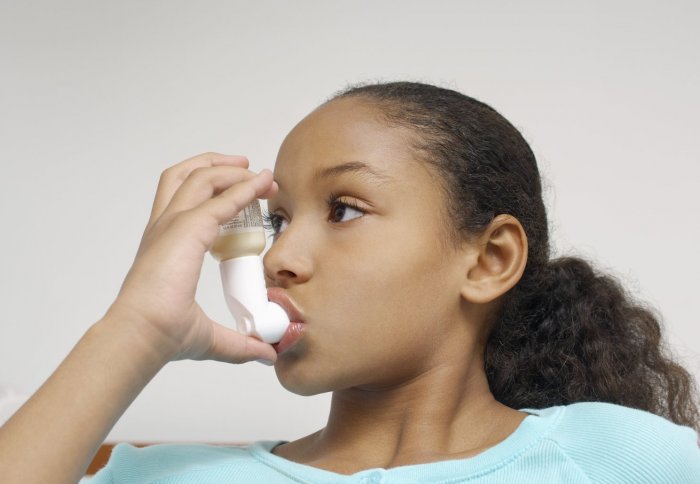Passive smoking impairs children's responses to asthma treatment
by Sam Wong

Children exposed to cigarette smoke at home have lower levels of an enzyme that helps them respond to asthma treatment, a study has found.
Passive smoking is known to worsen asthma symptoms in children and impair their response to inhaled steroid treatment, but how this effect occurs was not known.
Researchers at Imperial College London found that children with severe asthma with a parent who smokes at home have lower levels of the enzyme HDAC2 compared with those whose parents don’t smoke. HDAC2 is required for steroids to exert their beneficial anti-inflammatory effects in asthma.
The findings are reported in the journal Chest.
Professor Peter Barnes FRS, from the National Heart and Lung Institute at Imperial College London, said: “The mechanism we’ve identified makes children less sensitive to inhaled steroid treatment, so they suffer more symptoms and might have to take higher doses of steroids, which may lead to side effects.
“These findings underline the importance of legislation aimed at protecting children from being exposed to cigarette smoke. Restricting smoking in cars is a positive step, but the same should be applied in homes.”
Over a million children in the UK have asthma. Steroid treatments, usually taken using inhalers, are given to prevent asthma attacks, but for many patients, they aren’t completely effective.
The Imperial researchers studied 19 children with severe asthma receiving treatment at Royal Brompton Hospital in London. Nine had parents who smoked at home and 10 were from non-smoking households.
Cells from the lungs of children exposed to second-hand smoke had about half the levels of HDAC2 enzymes as those from children from non-smoking families.
“Children with asthma who are passively exposed to cigarette smoke have the same molecular abnormalities that lead to steroid resistance as adults who actively smoke,” said Professor Barnes. “The mechanism we’ve identified will be a target for new treatments to help children with severe asthma.”
The study was funded by the Wellcome Trust and the National Institute for Health Research (NIHR) Respiratory Biomedical Research Unit at Royal Brompton & Harefield NHS Foundation Trust and Imperial College London.
Reference: Yoshiki Kobayashi et al. ‘Passive Smoking Impairs Histone Deacetylase-2 in Children With Severe Asthma.’ Chest 2014; 145(2):305–312.
Article supporters
Article text (excluding photos or graphics) © Imperial College London.
Photos and graphics subject to third party copyright used with permission or © Imperial College London.
Reporter
Sam Wong
School of Professional Development